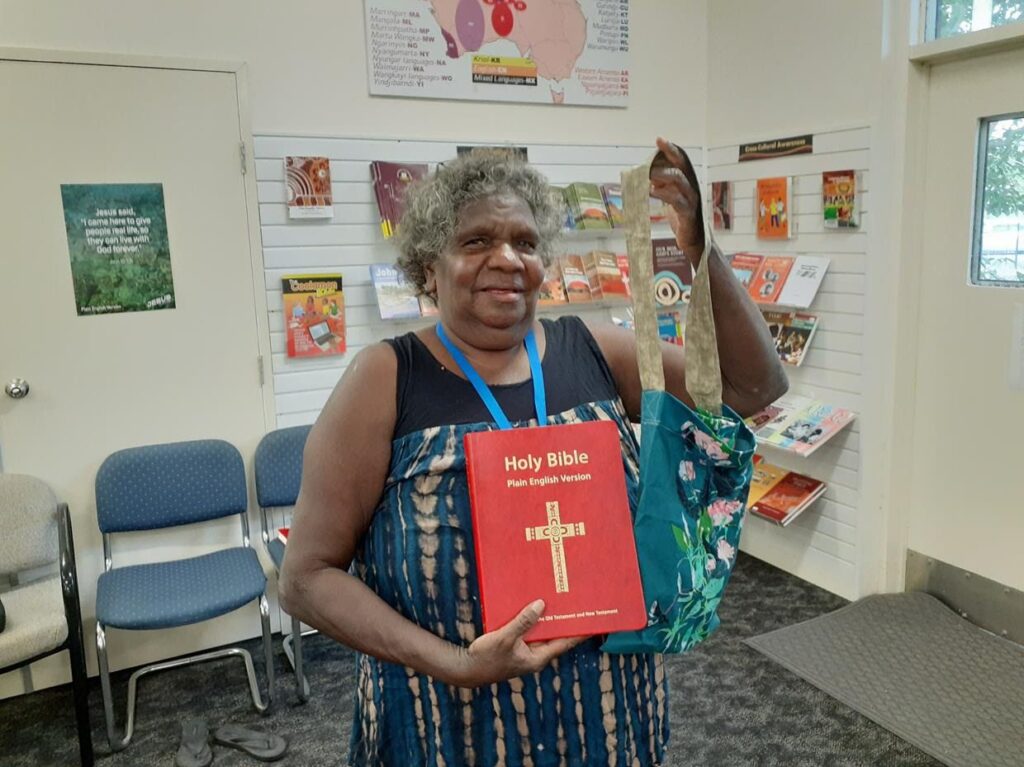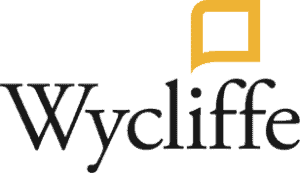What do you think of when you hear the word mob? An unruly group, angry and clamouring for justice?
Does the word cheeky make you think of a child trying their luck and giving you a charming grin?
Have you always seen the word promise as an agreement that can never be broken?
And does the word payback lead you to think of revenge?

Normally you’d be correct, but in the Plain English Version (PEV) Mini-Bible these words mean something very different. This is an English translation of the Bible designed specifically for Aboriginal Australians who speak English as a second language. It’s an important strategic project for Indigenous language communities, as it not only provides them with an immediate resource to use in their churches, but will also form the basis of projects to translate God’s Word into their own languages in the future. Here are two verses from John’s Gospel to give you an example:
“This is the story about somebody called the Word. Before God made anything, the Word was with God, and he was just the same as God. You see, the Word was God. Yes, the Word was with God before anything happened” (John 1:1–2).
So how does this relate to those words you read earlier? Well, although the PEV Mini-Bible should be understandable to anyone who uses English as their main language, there are still some terms that are more specific to Indigenous Australian people.
Cheeky snakes
Mob is a common term for any loosely related group of people (or animals). They don’t have to be furious and demanding justice.
Cheeky can also mean dangerous – quite a few “cheeky snakes” appear in the PEV.
Here’s an excellent example where both of those words are used:
“Some men came to that place to watch John baptize people. Some of them were from the Pharisee mob, that were strong for the Jewish law, and some of them were from the mob called Sadducees. John saw them and said, ‘You mob are bad, and you are tricky. You are just like a mob of cheeky snakes'” (Matthew 3:7).
The definition of payback is like a word turned on its head. In the PEV, payback refers to the system of justice and recompense built into Aboriginal law.
The greatest impact
So can you imagine the impact when Indigenous Australian people read in the PEV Mini-Bible how Jesus ‘took the payback for the bad things we did’! (1 Peter 3:18)
Today is the International Day of the World’s Indigenous People. There are an estimated 476 million indigenous people in the world, speaking about 4,000 languages and living in 90 countries. And every single one of those people matters to God. Many of their languages have little or no Scripture translated into them.
While indigenous people make up less than six per cent of the world’s population, they account for 19 per cent of the poorest. It’s often in communities like theirs that the ripple effects of Bible translation can have the greatest impact.
God wants His Word to be heard and understood by people in their own languages. And the tremendous news about the progress of the PEV Mini-Bible is a wonderful example of how those who are often in the most marginalized communities in the world can be given access to God’s Word and have the opportunity to come to know Jesus through the Bible.
Source: Wycliffe UK website

